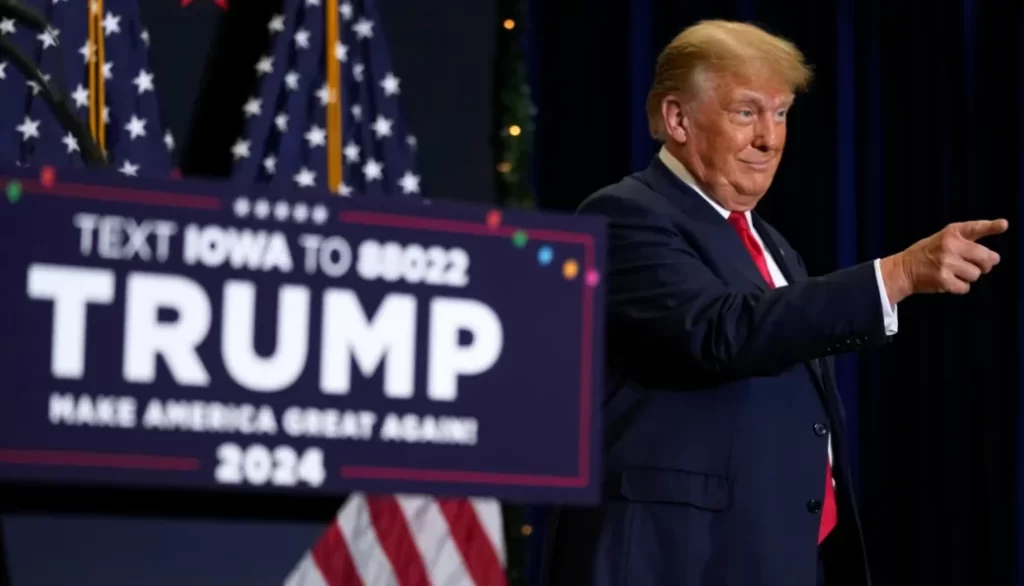
Summary:
- Uncharted Disqualification: Former President Donald Trump finds himself excluded from Colorado’s primary ballot due to his alleged involvement in the January 6, 2021, Capitol attack. A groundbreaking 4-3 decision by the Colorado Supreme Court invokes a seldom-used constitutional provision targeting officials connected to “insurrection or rebellion.”
- Impending Supreme Court Showdown: Unyielding in his resolve, Trump plans to appeal, leading to a postponement in implementing the decision until at least January 4, 2024. This sets the scene for the U.S. Supreme Court, dominated by a conservative majority, to scrutinize Trump’s eligibility for a subsequent presidential term. The legal battle becomes a pivotal trial, probing the application of Section 3 of the 14th Amendment to disqualify Trump from state ballots.
In a groundbreaking move, the Colorado Supreme Court has delivered a 4-3 ruling to disqualify former President Donald Trump from Colorado’s primary ballot. The decision stems from Trump’s alleged role in the assault on the U.S. Capitol by his supporters on January 6, 2021. Marking the first time a presidential candidate has been declared ineligible for the White House, the ruling invokes a rarely utilized constitutional provision, specifically targeting officials engaged in “insurrection or rebellion.”
While the ruling’s immediate impact is confined to Colorado’s March 5 Republican primary, its implications loom over the general election on November 5. Despite Colorado being considered a secure Democratic state by nonpartisan election forecasters, the decision holds significance as a precedent-setting legal and political development with the potential to shape future cases.
Undeterred by the verdict, Trump promptly declared his intention to appeal to the U.S. Supreme Court. Recognizing the gravity of the case, the Colorado court has deferred the decision’s implementation until at least January 4, 2024, providing a window for the appeal process. This delay sets the stage for a potential showdown in the nation’s highest court, where Trump’s eligibility for another term as president will face scrutiny, particularly with three justices appointed during his presidency as part of the conservative majority.
Beyond the realm of state politics, this lawsuit serves as a litmus test for a broader effort to bar Trump from state ballots under Section 3 of the 14th Amendment. Originally enacted after the U.S. Civil War to prevent supporters of the Confederacy from holding government office, this constitutional provision is now the focal point of a legal battle that could influence the future participation of controversial figures in American politics.
Frequently Asked Questions:
Q1: Can Trump still pursue the presidency in other states?
A1: The ruling is specific to Colorado’s primary ballot, but its potential to set a legal precedent raises the prospect of similar challenges in other states.
Q2: What does Section 3 of the 14th Amendment involve?
A2: Section 3 disqualifies individuals from public office if they have engaged in rebellion or supported such actions. Initially aimed at preventing Confederate sympathizers from holding government positions, its contemporary application, including the Capitol attack, is being tested in this case.
